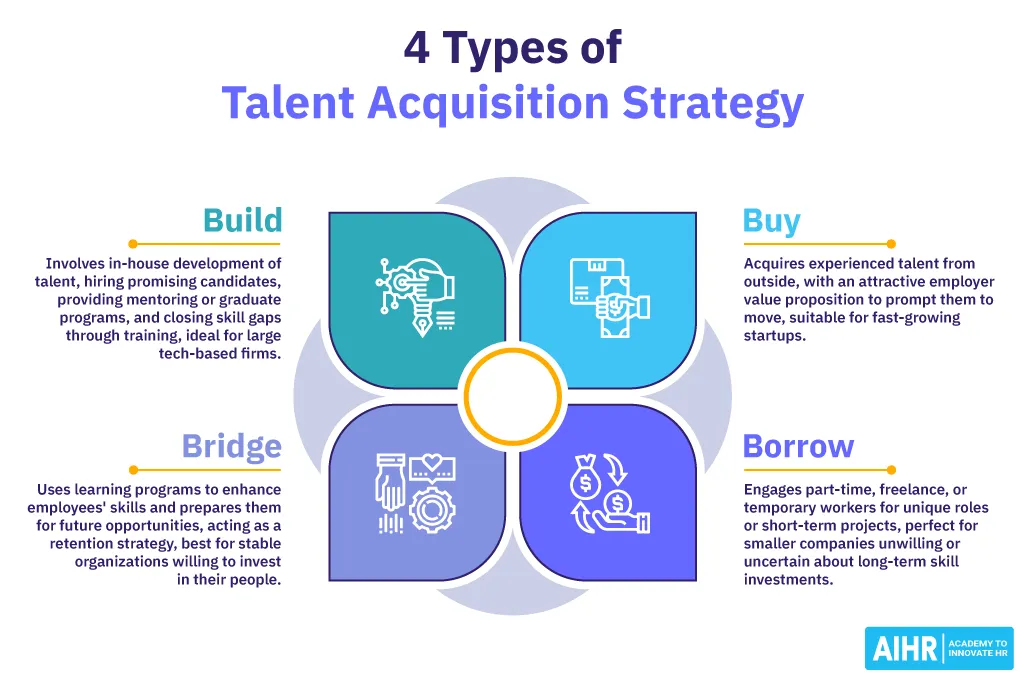Effective Strategies for Global Talent Sourcing in Remote Roles
Understanding Global Talent Sourcing for Remote Positions
Definition and Importance of Global Talent Sourcing
Global talent sourcing is the proactive process of identifying, attracting, and engaging potential candidates from around the world. For remote roles, this is even more crucial as it breaks down geographical barriers.
This approach allows companies to tap into a diverse and extensive talent pool. It is not just about filling positions but about finding the best fit regardless of location.
Benefits of Hiring Remote Talent Globally
Hiring remote talent globally offers numerous advantages. Companies can access a wider range of skills and expertise, often at competitive rates.
Diversity in the workplace is enhanced, leading to more innovative solutions and perspectives. A study showed that companies with diverse executive teams are likely to outperform those that don’t.

Key Trends in Remote Work and Talent Acquisition
Remote work has surged, becoming a staple in many industries. This shift is driven by technological advancements and a growing desire for work-life balance.
In 2024, about 64% of employees are working fully remotely. Talent acquisition strategies must adapt to these trends, focusing on digital recruitment methods and remote-friendly policies.
Best Practices for Global Talent Sourcing
Crafting Inclusive Job Descriptions
Tailoring Job Descriptions for Diverse Audiences
Creating job descriptions that resonate with a global audience is vital. This involves using inclusive language and highlighting aspects that appeal to diverse candidates.
Avoid jargon or culturally specific terms. Focus on skills and qualifications that are universally understood.
Highlighting Company Culture and Values
Showcasing your company culture can attract candidates who align with your values. Emphasize aspects like flexibility, inclusivity, and opportunities for professional growth.
This can be done through employee testimonials or virtual office tours. Highlighting these elements helps candidates see themselves thriving in your organization.
Leveraging Advanced Technology and Tools
Key Technologies for Remote Talent Acquisition
Technology plays a pivotal role in sourcing remote talent. Applicant Tracking Systems (ATS), video interviewing platforms, and AI-driven sourcing tools are essential.
These technologies streamline the hiring process. They make it easier to manage a large volume of applications and conduct interviews across different time zones.
Comparison of Top Talent Acquisition Tools
| Feature | Manatal | Greenhouse | Workable |
|---|---|---|---|
| AI Matching | Yes, AI-driven candidate sourcing | Yes, automation and personalization tools | Yes, AI-powered matching |
| Candidate Sourcing | Over 20 social media and public platforms | LinkedIn, Indeed, Monster, ZipRecruiter | 200+ job sites |
| Pricing | Starting at $69/user/month | Custom pricing upon request | Starting at $129 per job posting, per month |
| Free Trial | Yes, 14-day | Yes, available upon request | Yes, 15-day |
| Integrations | LinkedIn, Gmail, Outlook, Mailchimp, open API | BambooHR, Calendly, Checkr, DocuSign, GoodTime | BambooHR, Factorial, Gmail, HR Cloud, Microsoft Outlook |
Leveraging tools like Manatal can enhance your global talent acquisition strategy. Their AI Engine simplifies the hiring process by suggesting the best candidates for a job and automating redundant tasks.
Utilizing Social Media and Niche Job Boards
Platforms to Reach Global Candidates
Social media platforms like LinkedIn are invaluable for reaching a global audience. Niche job boards such as We Work Remotely and Remote OK cater specifically to remote job seekers.
Using these platforms expands your reach. It increases the likelihood of finding qualified candidates from various regions.
Strategies for Effective Online Recruitment
Effective online recruitment involves creating engaging content and targeted ads. Highlight your company’s remote work culture and the benefits of joining your team.
Regularly update your careers page and social media profiles with new opportunities. Engage with potential candidates through comments and messages.
Challenges in Sourcing Remote Talent Globally
Cultural and Language Barriers
Importance of Cross-Cultural Communication
Cross-cultural communication is crucial when dealing with a global talent pool. Misunderstandings can arise due to differences in communication styles and cultural norms.
Investing in cross-cultural training for your recruitment team can help mitigate these issues. This ensures everyone is on the same page.
Strategies to Mitigate Misunderstandings
Using clear and concise language in all communications is essential. Providing language support or translation services can also be beneficial.
Encourage open dialogue and feedback to address any concerns promptly. Creating a culture of inclusivity and respect is key.
Legal and Compliance Issues
Navigating International Labor Laws
Hiring globally involves navigating complex international labor laws. Each country has its own set of regulations regarding employment, taxation, and data privacy.
Non-compliance can lead to legal issues and financial penalties. It is crucial to stay informed and adapt your hiring practices accordingly.
Importance of Employer of Record Services
Employer of Record (EOR) services can simplify the process of hiring international employees. EORs handle legal compliance, payroll, and other administrative tasks.
This allows your company to focus on finding the best talent. You can ensure that all legal requirements are met without the added burden.
Time Zone Management
Tools for Effective Scheduling Across Time Zones
Managing a team across different time zones can be challenging. Scheduling tools like Google Calendar and Calendly help coordinate meetings and interviews.
These tools automatically adjust for time zone differences. They ensure everyone is aware of the correct meeting times.
Strategies to Enhance Team Collaboration
Promoting asynchronous communication can improve team collaboration. Tools like Slack and Microsoft Teams facilitate real-time and delayed communication.
Encourage team members to document their work and share updates regularly. This keeps everyone informed and aligned, regardless of their location.

How to Attract Global Candidates for Remote Jobs
Building a Strong Employer Brand
Showcasing Success Stories and Employee Experiences
Sharing success stories and positive employee experiences can significantly enhance your employer brand. Highlight how your company supports remote workers and fosters a positive work environment.
This can be done through blog posts, social media updates, and video testimonials. Potential candidates are more likely to apply if they see that current employees are happy and successful.
Engaging in Diversity and Inclusion Initiatives
Demonstrating a commitment to diversity and inclusion is crucial for attracting global talent. Implement policies that promote equal opportunities and create an inclusive workplace.
Highlight these initiatives in your recruitment materials and on your website. This shows that you value diversity and are committed to creating a welcoming environment for all employees.
Offering Competitive Compensation Packages
Understanding Regional Salary Expectations
Salary expectations can vary significantly between regions. Researching and understanding these differences is essential for offering competitive compensation packages.
Websites like Glassdoor and Salary.com provide insights into regional salary trends. Tailor your offers to align with local market rates while also considering the cost of living.
Providing Benefits that Appeal to Global Talent
Offering benefits that cater to a global workforce can make your company more attractive. Health insurance, retirement plans, and paid time off are standard expectations.
Consider additional perks like flexible working hours, remote work stipends, and professional development opportunities. These benefits can help you stand out from the competition.
Fostering a Positive Remote Work Environment
Strategies for Employee Engagement and Retention
Engaging and retaining remote employees requires a proactive approach. Regular check-ins, virtual team-building activities, and recognition programs can boost morale and foster a sense of belonging.
Provide opportunities for professional growth and development. Encourage open communication and feedback to address any concerns promptly.
Importance of Continuous Professional Development
Investing in continuous professional development is crucial for keeping remote employees engaged and motivated. Offer access to online courses, webinars, and other learning resources.
Support employees in pursuing certifications and attending virtual conferences. This not only enhances their skills but also shows that you are invested in their career growth. Companies like Google offer career development workshops and fosters an inclusive culture, which can enhance your retention rates.
Conclusion: The Future of Global Talent Sourcing in Remote Roles
Key Takeaways for Organizations
Global talent sourcing is essential for companies looking to thrive in today's competitive landscape. Embracing remote work and leveraging technology can help you attract and retain top talent from around the world.
Building a strong employer brand, offering competitive compensation, and fostering an inclusive work environment are key strategies. It is also important to navigate the challenges of cultural differences, legal compliance, and time zone management effectively.
The Evolving Landscape of Remote Work and Recruitment Strategies
The landscape of remote work and recruitment is constantly evolving. Staying informed about the latest trends and best practices is crucial for success.
As remote work becomes more prevalent, companies must adapt their talent acquisition strategies accordingly. By embracing flexibility, diversity, and technology, organizations can build a strong, global workforce that drives innovation and growth.
Key Takeaways
- Global talent sourcing expands your reach: Access a wider range of skills and expertise worldwide.
- Technology is crucial for remote recruitment: Utilize ATS, video interviews, and AI tools to streamline the process.
- Inclusive job descriptions attract diverse candidates: Use universal language and highlight company culture.
- Competitive compensation and benefits are key: Understand regional salary expectations and offer appealing perks.
- Employee engagement and development are vital: Foster a positive remote work environment and invest in continuous learning.
